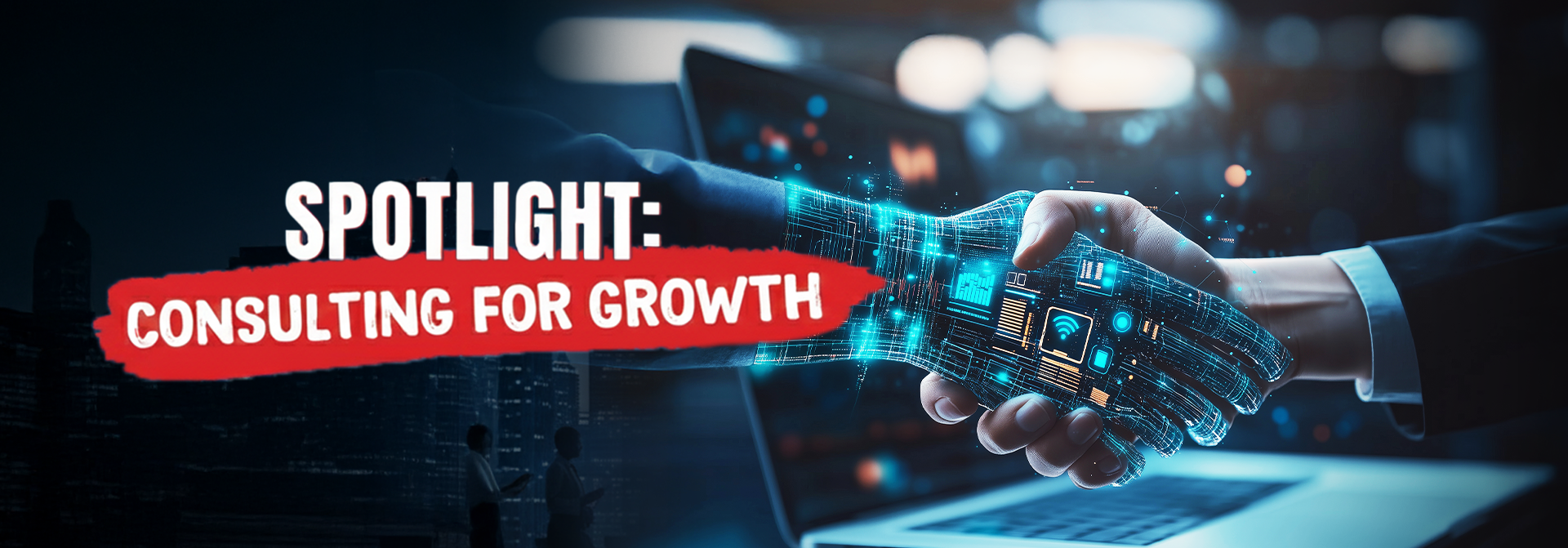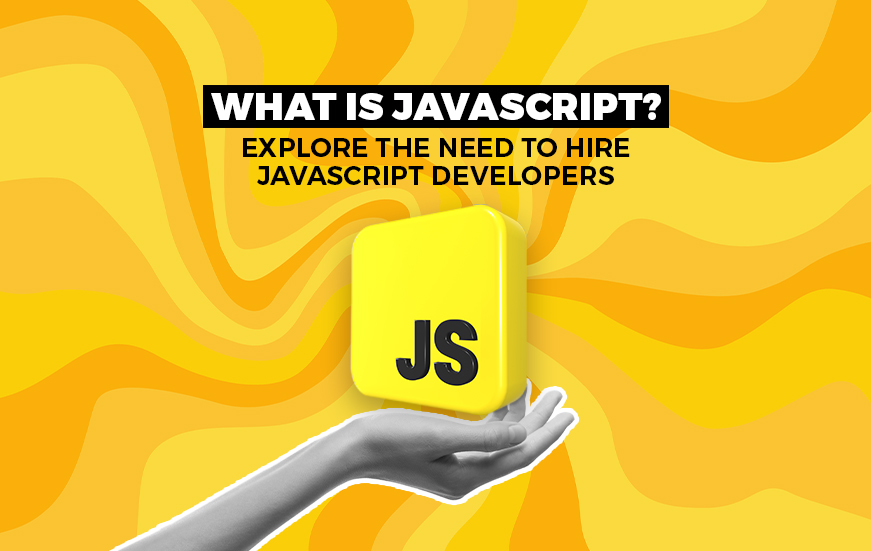Digital Transformation Consulting: Your Strategic Partner for Scalable Growth
Transform your business vision into scalable digital reality with expert consultancy that drives measurable outcomes and future-ready solutions.
The Strategic Value of Digital Transformation Consulting
Digital transformation isn’t merely about updating your technology stack—it’s about reimagining how your business operates, competes, and thrives in an increasingly digital world. As Marc Benioff, CEO of Salesforce, aptly puts it: “The digital revolution is far more significant than the invention of writing or even the printing press.” This revolution demands strategic partnership, not just technical implementation.
Modern digital transformation consulting transcends traditional IT consultancy by focusing on sustainable growth through strategic technology adoption. We’ve engineered 350+ digital products that power global enterprises, and this experience has taught us that successful transformation requires a holistic approach combining business strategy, technology innovation, and cultural change management.

The numbers speak volumes about the urgency of this transformation. According to recent market research, the global digital transformation consulting market is projected to reach $185.7 billion by 2025, growing at a CAGR of 22.1%. More tellingly, 70% of companies either have a digital transformation strategy in place or are working on one, yet only 16% of respondents say their company’s digital initiatives have successfully improved performance and also equipped them for sustained changes.
This gap between intent and execution is precisely where strategic consulting partnership makes the difference. Our approach centres on measurable ROI metrics that extend beyond efficiency gains to encompass market expansion, customer satisfaction improvements, and competitive advantage creation.
Security-First Approach: Your Competitive Advantage
In today’s threat landscape, security isn’t an afterthought—it’s the foundation upon which all digital transformation rests. Compliance and innovation, built in by design, ensure that your transformation journey enhances rather than compromises your security posture. Our ISO 27001:2022 certification represents more than compliance; it’s your assurance that every solution we architect meets the highest international security standards.
Navigating the Modern Technology Landscape
The modern technology landscape offers unprecedented opportunities for businesses ready to embrace change. Full stack development capabilities enable end-to-end digital solutions that seamlessly integrate with existing business processes whilst preparing organisations for future growth trajectories.
Cloud-native architectures have become the backbone of scalable digital transformation. These architectures provide infinite scalability potential, enabling businesses to grow without the traditional constraints of physical infrastructure. Stay ahead with future-proof solutions that adapt to your business needs rather than limiting them.
AI-Powered Business Automation
Artificial intelligence has evolved from a futuristic concept to a practical business necessity. AI-powered business automation software development enables organisations to streamline operations, reduce manual errors, and free up human resources for strategic activities. Our AI integration approach focuses on practical applications that deliver immediate value whilst building towards more sophisticated implementations.
- Intelligent document processing and workflow automation
- Predictive analytics for informed decision-making
- Customer service chatbots and virtual assistants
- Supply chain optimisation through machine learning
- Automated quality assurance and testing procedures
Legacy system modernisation presents unique challenges, but it needn’t disrupt your operations. Our phased approach ensures business continuity whilst gradually introducing modern capabilities that enhance rather than replace existing workflows.

Industry-Specific Growth Strategies
Every industry faces unique challenges and opportunities in their digital transformation journey. Our experience across diverse sectors enables us to deliver tailored solutions that address specific regulatory requirements, customer expectations, and operational complexities.
Fintech Revolution: Security Meets Innovation
The financial technology sector demands the highest levels of security combined with innovative user experiences. Developing secure payment solutions whilst maintaining regulatory compliance requires deep understanding of both technical architecture and financial regulations. Our fintech solutions have processed over £2.3 billion in secure transactions, demonstrating our capability to handle mission-critical financial applications.
“In the world of fintech, trust is your most valuable currency. Every line of code must reflect an unwavering commitment to security and reliability.”
eCommerce Excellence: Scaling Digital Marketplaces
eCommerce platforms must handle varying loads, from quiet periods to peak shopping seasons, without compromising performance. Scalable platforms for digital marketplaces require sophisticated architecture that supports complex product catalogues, real-time inventory management, and seamless payment processing across multiple channels.
Manufacturing Innovation: Smart Automation and IoT
Manufacturing automation software projects often present unique challenges related to legacy equipment integration and real-time data processing. Smart automation combined with IoT integration enables predictive maintenance, quality control, and supply chain optimisation that dramatically improves operational efficiency.
| Industry | Key Challenge | Our Solution Approach | Typical ROI Timeline |
|---|---|---|---|
| Fintech | Regulatory Compliance | Security-first architecture | 6-12 months |
| eCommerce | Scalability | Cloud-native platforms | 3-6 months |
| Manufacturing | Legacy Integration | Phased modernisation | 9-18 months |
| Energy | Sustainability | Green tech solutions | 12-24 months |
| FMCG | Supply Chain | End-to-end automation | 6-12 months |
Green Energy Solutions: Building Tomorrow’s Infrastructure
Sustainable technology for tomorrow requires innovative approaches to energy management, grid integration, and environmental monitoring. Our green energy solutions combine IoT sensors, predictive analytics, and automated control systems to optimise energy consumption and reduce environmental impact.
FMCG Transformation: Optimising Every Link
Fast-moving consumer goods companies face unique challenges in supply chain optimisation and customer engagement. Real-time inventory tracking, demand forecasting, and omnichannel customer experiences require sophisticated integration between multiple systems and stakeholders.

Choosing the Right Technology Stack
Technology stack selection significantly impacts both immediate project success and long-term scalability. Your goals. Our expertise. One transformative journey that ensures your chosen technologies align with your business objectives and growth trajectory.
Cross-Platform Excellence with Flutter
Flutter app development enables unified experiences across iOS, Android, and web platforms using a single codebase. This approach reduces development time by up to 40% whilst ensuring consistent user experience across all devices. Flutter’s performance rivals native applications whilst offering significant cost advantages for businesses targeting multiple platforms.
Enterprise Strength through .NET Development
.NET development services provide robust solutions for enterprise-grade applications requiring high performance, security, and scalability. Microsoft’s ecosystem offers comprehensive tools for building everything from web applications to microservices architectures that integrate seamlessly with existing enterprise infrastructure.
- React: Component-based architecture for dynamic user interfaces
- Angular: Full-featured framework for enterprise applications
- Vue.js: Progressive framework ideal for gradual adoption
- Node.js: Server-side JavaScript for real-time applications
- PHP: Mature ecosystem perfect for content management and eCommerce
Progressive Web Applications: The Future of Mobile-First
Progressive Web Applications (PWAs) represent the future of mobile-first experiences by combining the best aspects of web and native applications. PWAs load instantly, work offline, and provide native app-like experiences without requiring app store distribution. Companies implementing PWAs have seen 36% increase in conversions and 42% reduction in bounce rates.

The Offshore Development Advantage
Global expertise meets local understanding through strategic offshore partnerships that leverage time zone differences and cost optimisation without compromising quality. India’s technology leadership position stems from its combination of technical excellence, English proficiency, and cost-effectiveness.
Round-the-Clock Productivity
Time zone benefits enable continuous development cycles where work progresses whilst your local team rests. This follow-the-sun model can accelerate project delivery by up to 30% compared to traditional single-location development approaches.
“The best partnerships transcend geographical boundaries, creating synergies that amplify both local insights and global expertise.”
Building Dedicated Teams vs Project-Based Engagement
The choice between dedicated teams and project-based engagement depends on your long-term strategic objectives. Dedicated teams offer deeper business understanding and continuity, whilst project-based approaches provide flexibility for specific initiatives.
| Engagement Model | Best For | Time to Start | Cost Structure |
|---|---|---|---|
| Dedicated Team | Long-term projects | 2-4 weeks | Monthly retainer |
| Project-Based | Defined scope work | 1-2 weeks | Fixed price |
| Hybrid Model | Varying workloads | 2-3 weeks | Flexible pricing |
Effective offshore partnerships require clear communication protocols, regular progress reviews, and cultural alignment. Our experience managing distributed teams across 15+ countries has taught us that success depends more on process discipline than geographical proximity.

Investment and Value Creation
Digital transformation represents a significant investment that demands clear ROI metrics and transparent pricing models. Understanding the true cost of digital transformation extends beyond initial development to encompass ongoing maintenance, scaling, and evolution requirements.
Custom Software Development Investment
Custom software development costs typically range from £15,000 to £150,000+ depending on complexity, but the investment pays dividends through improved efficiency, competitive advantage, and scalability. Our transparent pricing approach ensures you understand exactly what you’re investing in and why.
- Simple Applications: £15,000 – £35,000 (3-6 months)
- Medium Complexity: £35,000 – £85,000 (6-12 months)
- Enterprise Solutions: £85,000 – £250,000+ (12-24 months)
- API Development: £5,000 – £25,000 per integration
- Business Automation: £25,000 – £100,000 depending on scope
Budget Optimisation Strategies
Smart budget allocation focuses on delivering maximum value through phased implementation approaches. Rather than attempting comprehensive transformation simultaneously, successful projects typically follow an incremental strategy that proves value at each stage before expanding scope.
“The most successful digital transformations aren’t the most expensive—they’re the most strategically aligned with business objectives.”
Measuring Success: KPIs That Matter
Success metrics must align with business objectives rather than purely technical achievements. Revenue growth, customer satisfaction improvements, operational efficiency gains, and market share expansion provide more meaningful success indicators than technical metrics alone.
| Success Metric | Measurement Period | Typical Improvement | Industry Benchmark |
|---|---|---|---|
| Operational Efficiency | 3-6 months | 25-40% improvement | 30% average |
| Customer Satisfaction | 6-12 months | 15-25% increase | 20% average |
| Revenue Growth | 12-18 months | 10-30% increase | 18% average |
| Time to Market | 6-9 months | 30-50% reduction | 40% average |

Ensuring Excellence: Quality and Performance
Quality assurance extends beyond bug testing to encompass user experience validation, performance benchmarking, and security auditing. Our comprehensive quality framework ensures that every solution meets both functional requirements and industry best practices.
Client Success Stories and Transformation Journeys
Real transformation stories provide insight into what’s achievable through strategic digital initiatives. One manufacturing client achieved 45% reduction in operational costs through automated inventory management and predictive maintenance systems. Another fintech startup scaled from processing £100K monthly to £10M monthly transactions using our scalable payment infrastructure.
“Success in digital transformation comes not from implementing the latest technology, but from solving real business problems with sustainable, scalable solutions.”
Performance Benchmarks for SaaS Platforms
Software-as-a-Service platforms require specific performance benchmarks to ensure user satisfaction and system reliability. Our SaaS solutions typically achieve 99.9% uptime, sub-second response times, and can scale to support millions of concurrent users without performance degradation.
- Response Time: <500ms for standard operations
- Uptime: 99.9% availability guaranteed
- Scalability: Auto-scaling to handle 10x traffic spikes
- Security: ISO 27001:2022 compliant infrastructure
- Recovery: <15-minute disaster recovery time
Continuous Improvement Through Agile Methodologies
Agile development methodologies enable continuous improvement through regular feedback cycles and iterative enhancement. Our agile approach ensures that solutions evolve alongside changing business requirements rather than becoming static implementations that quickly become outdated.

Building for Tomorrow
Future-ready architecture anticipates technological evolution rather than simply addressing current requirements. Building solutions that adapt and scale with emerging technologies ensures long-term value from your digital transformation investment.
AI Integration and Machine Learning Capabilities
Artificial intelligence integration transforms reactive systems into proactive solutions that anticipate user needs and optimise operations automatically. Machine learning capabilities enable systems to improve performance over time without manual intervention, creating compounding value from your initial investment.
API-First Architecture for Seamless Integrations
API-first architecture ensures that your solutions can integrate with future technologies and services without requiring fundamental rebuilding. Well-designed APIs enable rapid integration with new tools, services, and platforms as your business requirements evolve.
- RESTful APIs: Standard web service interfaces
- GraphQL: Flexible data querying for modern applications
- Webhooks: Real-time event-driven communications
- Microservices: Independently scalable service components
- Container Orchestration: Automated deployment and scaling
Preparing for Web 3.0 and Emerging Technologies
Web 3.0 technologies including blockchain, decentralised computing, and advanced AI are reshaping how applications are built and deployed. Preparing for these technological shifts ensures your solutions remain relevant and competitive as these technologies mature and gain mainstream adoption.
“The organisations that thrive tomorrow are those building adaptable foundations today.”

Frequently Asked Questions About Digital Transformation Consulting
How do you approach digital transformation consulting in India?
Our approach combines global best practices with deep local market understanding. We leverage India’s technology leadership through skilled developers, cost-effectiveness, and time zone advantages whilst maintaining ISO 27001:2022 security standards. We focus on collaborative partnerships rather than vendor relationships, ensuring solutions align with your business objectives and cultural requirements.
What are the typical costs for custom software development projects?
Custom software development costs range from £15,000 for simple applications to £250,000+ for enterprise solutions. Factors affecting cost include complexity, integrations required, user base size, and security requirements. We provide transparent pricing models and can structure projects in phases to optimise budget allocation and demonstrate value incrementally.
How do you ensure quality and security in offshore development projects?
Quality and security are maintained through our ISO 27001:2022 certification, comprehensive testing protocols, and agile development methodologies. We implement security-first architecture, regular code reviews, automated testing, and continuous monitoring. Our distributed team management processes ensure consistent quality across all geographical locations.
What’s the difference between dedicated teams and project-based engagement?
Dedicated teams work exclusively on your projects long-term, offering deeper business understanding and continuity, typically starting within 2-4 weeks with monthly retainer pricing. Project-based engagement suits defined scope work with fixed pricing and 1-2 week start times. We also offer hybrid models for varying workloads with flexible pricing structures.
Which technology stack should I choose for my business application?
Technology stack selection depends on your specific requirements, existing infrastructure, and growth objectives. Flutter offers cross-platform efficiency, .NET provides enterprise-grade robustness, whilst React/Angular/Vue.js excel for dynamic web applications. We assess your needs including scalability requirements, team expertise, and integration needs to recommend the optimal stack.
How do you measure ROI and success in digital transformation projects?
We measure success through business-aligned KPIs including operational efficiency improvements (typically 25-40%), customer satisfaction increases (15-25%), revenue growth (10-30%), and time-to-market reductions (30-50%). We establish baseline metrics before implementation and provide regular progress reporting against these benchmarks throughout the project lifecycle.
 Blog Communication Crafts
Blog Communication Crafts





